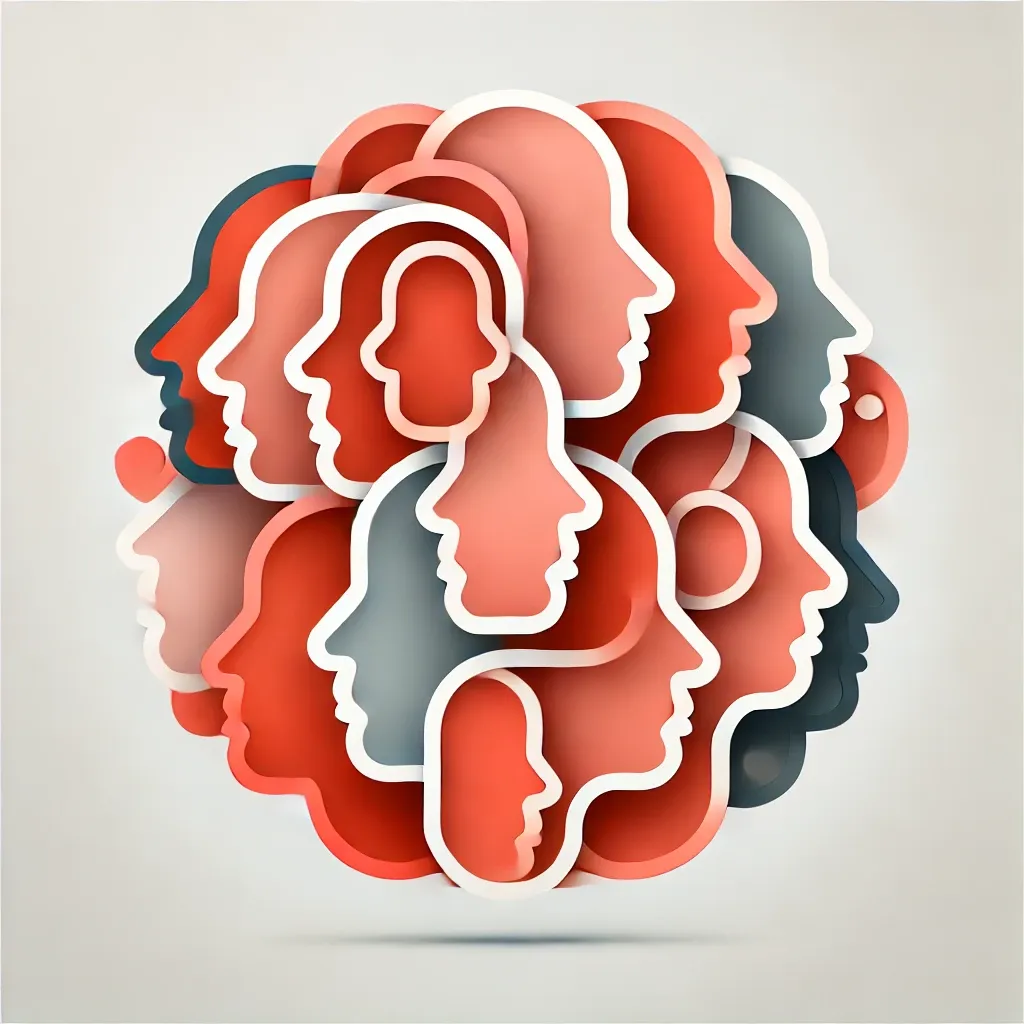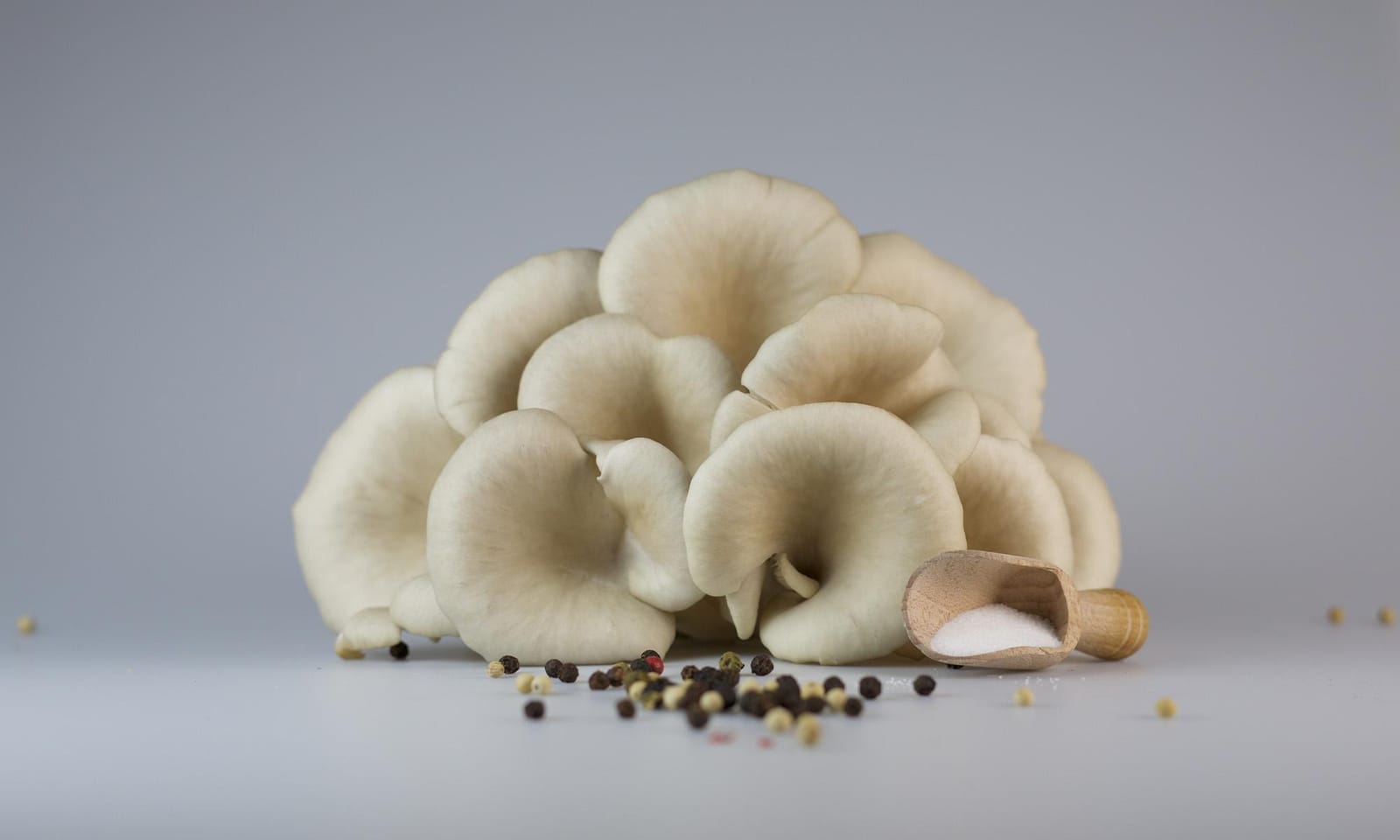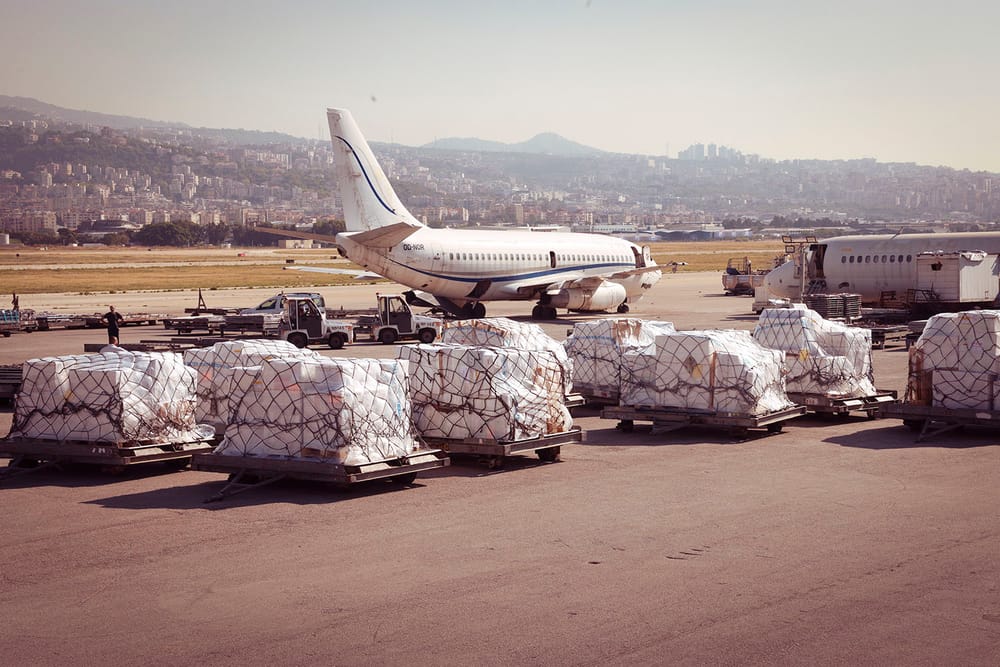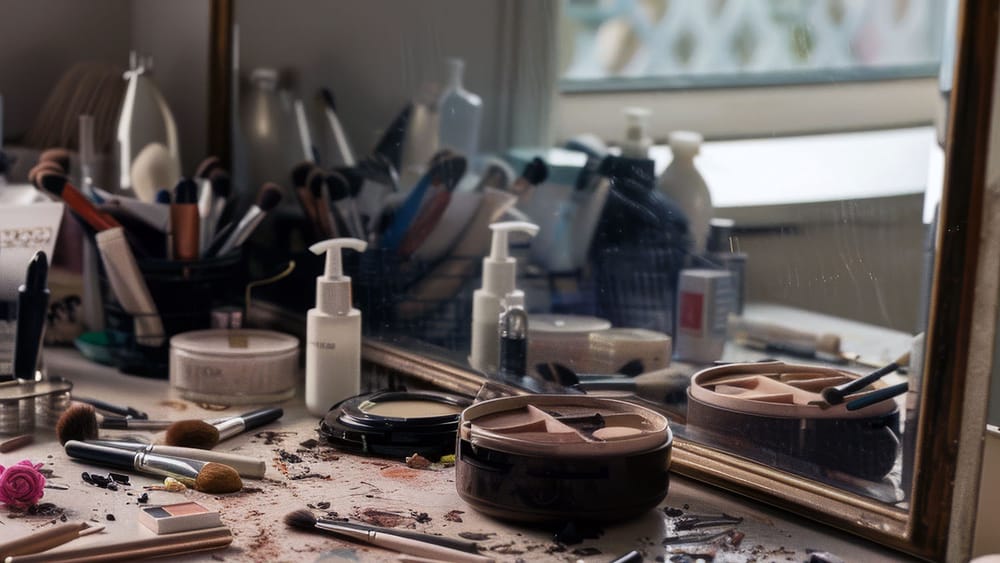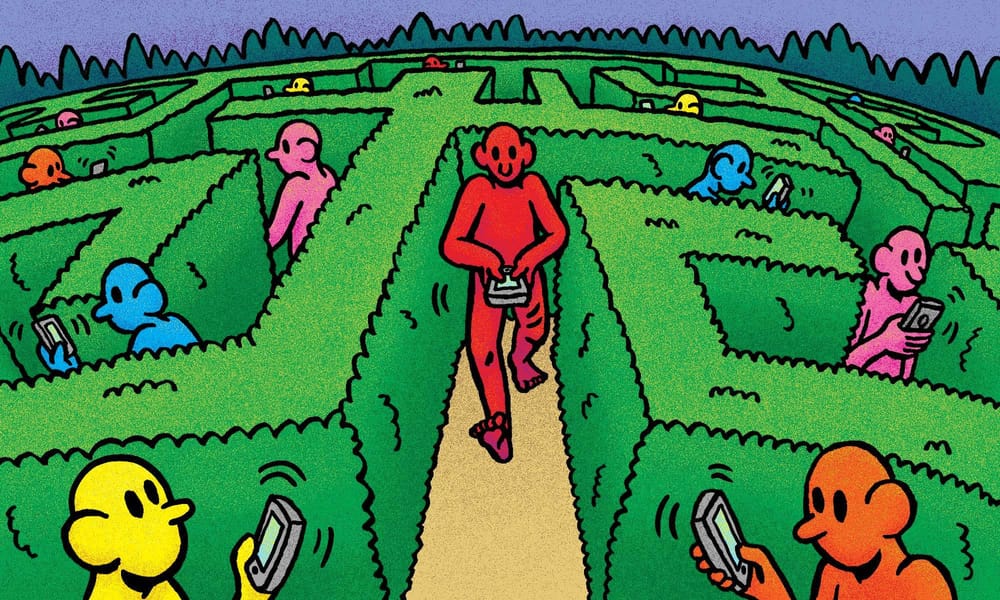Modern problems require modern solutions. The new frontier of solution-based innovation lies in the field of biotechnology. Bioinnovators: The Humans At The Forefront Of Biotech is a series of interviews with the organisations and entrepreneurs at the forefront of changing the world through biotechnology. With each interview, we hope to shine the light on conscious innovators and trailblazers across the globe who are using the natural world, combined with modern technological innovations, to find new solutions to the world’s most pressing problems.
After 15 years working in the financial services sector, Dutch social entrepreneur and urban farmer Siemen Cox decided it was time for a change. While in search of a sustainable business idea, he stumbled upon the concept of growing mushrooms from coffee waste in the book The Blue Economy by Belgian economist and entrepreneur Gunter Pauli. Cox nurtured the idea into a successful urban mushroom farming business called rotterzwam, which sells harvested mushrooms as well as personal mushroom growing kits in Rotterdam, the Netherlands. A big believer in ‘open source’ philosophy and incorporating it into business, Cox also teaches aspiring social entrepreneurs and urban farmers about the ins and outs of commercial mushroom farming from coffee waste. In this interview, Cox talks about the technology behind rotterzwam’s mushroom growing process, the Blue Economy principle and balancing profit with social impact.
How did you come into this field and what was the inspiration behind growing mushrooms from coffee waste?
I was not originally an urban farmer. After my education, which was all about economics, finance and law, I started to work in the financial services area. So I worked with banking and insurance companies. I did that for 10 years as an employee, and for five years I was a freelancer. And after 15 years, I didn’t really feel connected with that branch anymore, so I decided I wanted to change my occupation. And I did that by asking myself the question, “What would I do if money was no subject?” And then the word ‘sustainability’ came to my mind, and from there the ball went rolling.
So the inspiration behind the business case of growing mushrooms on coffee waste I got from a book. The book is called The Blue Economy and it is written by Gunter Pauli. And in this book, he describes more than 100 business cases of things you can do locally with waste, and growing mushrooms on coffee grounds was one of those cases. And that I kept in the back of my mind for a few years before I actually started to use that and build a business out of that idea.
Can you explain how this technology works? How do mushrooms grow from coffee waste in the grow kit? And where do you source your ingredients?
So let me explain to you how this technology works. There are two ways that you can do this. Firstly, on a small scale at home in a grow kit. We’ve made a grow kit that helps you convert your own coffee waste into mushrooms in your kitchen. You do that by collecting your coffee daily fresh, mixing it with spawn and putting it in a specially prepared bucket. And after a week of six, you can harvest lovely mushrooms in your own kitchen. The other way is at a bigger scale which we do in our farm. We collect the coffee grounds from offices and restaurants in the city centre, we bring that to our container farm, which is made out of eight reefer [refrigerated] containers, and there we mix the coffee with other ingredients: water, chalk, coffee husk and also the spawn. Then we put that in big bags which weigh about four to five kilos a piece and we hang that in the container. And then again, after three to six weeks, we find that the mushrooms are growing out and they are harvested and sold to the restaurants in the city centre.
I read that your mushroom-growing business is based on the ‘Blue Economy’ principle. Could you explain to our audience what the Blue Economy principle is?
So our business case is indeed built upon the Blue Economy principle. And I don’t know if there’s exactly an outlined one principle or two principles of the Blue Economy but it’s the thought that comes out of reading this book. So in this book, Gunter explains and shows and shares, based on open source, these business cases of things you can do with waste. And I think that is what the Blue Economy thought process is all about: see what is locally available and collaborate with local partners to turn that waste into taste and definitely also be inspired by nature because in nature there is no waste. Waste is a human concept. In nature, the output for one system or one kingdom is the input for another system. And that is how we formed and are constantly developing our company: by taking responsibility for the entire value chain. We don’t just grow mushrooms and then that’s it. No, we are also looking at the legal status of waste before and after we have grown the mushrooms on the coffee and by also really making an effort to change the laws and that’s something that we’re doing with a project called Back to the Soil.
Can you talk about the Mushroom Learning Network Community Platform? Why did you start it and what are your goals for this platform?
So the Mushroom Learning Network Community Platform actually evolved out of a call from the Blue Economy network. Growing mushrooms on coffee ground is one of the showcase business cases of the Blue Economy, so we are definitely not the first who are doing this business case. Many have preceded us and many will follow. But when we started with this business case, we found that we started calling and mailing other entrepreneurs with questions like, “Can you help us figure out how this business case works?” And we found out that most did something like this [buries head in hands]. They said, “Yeah, I also read that book and it took me two years to figure out how it works, so I’m not sharing any information.” Just a few people [were helpful], among which [was] Ivanka Milenkovic, from Ekofungi in Serbia—we call her “the godmother of mushrooms” and she has over 20 years of experience in the mushroom science under her belt. And together with Ivanka and some other entrepreneurs, we hosted a community gathering where small-scale mushroom farmers come together and share their insights. So we looked at growing techniques, filters, climatisation systems, but also other cashflows and other products and services that you need to develop to make this business case work. And after we hosted five meetings, of which two were in Rotterdam, one in Paris, one in Brussels and one with our friends of Beyond Coffee in Denmark, corona happened and then we decided to take it online, and that’s why the Mushroom Learning Network Community Platform is an online platform where we connect the small-scale urban mushroom farmer.
In your opinion, why is it important to grow one’s own food and become self-sufficient? Do you believe that self-sufficiency is something that can help solve some of humanity’s problems and if yes, how?
I do think it’s important that we become more self-sufficient. What you see is that we have a few big challenges in our society and the moon landing of our generation is to get our lifestyle and our economy within the borders of this one planet that we’re living on. And if you look at the Earth overshoot today, you can see that we [are] clearly over-consuming the natural resources that our Earth can reproduce in the same year. So that means if everybody would live as a Dutch man, we would need 2.9 Earths to sustain everybody and we do not have that. So the people in Holland can only live the way they live because somewhere else there is less. So if we would focus more on producing our food locally and not transporting it all over the world, if we would focus more on eating into the season instead of having apples all year round, if we would look more at growing and consuming plant-based proteins over animal proteins, then we would go much faster to a society where we can fit these boundaries of this one planet with the people it is housing right now.
We are interviewing you for our theme Biotech For Change, so how do you personally understand the term ‘biotechnology’?
So if you look at biotechnology, it sort of has an eerie sound to it for me. I definitely do not like the idea that we’re mingling with the genome of plants and that we’re making genetically modified foods. But what I do think is very interesting is breeding in a certain way so that you can get the best out of it. For example, we are growing oyster mushrooms on coffee and these oyster mushrooms are known for creating enormous amounts of spores. And these spores that will be in the air in the growing units will be inhaled by the workers who harvest the mushrooms if they are not wearing any protection. And they will also damage the equipment because they will clog into the ventilator and into the air filters. And it will also produce pollution because other fungi will grow on these spores. So these are three very limiting things surrounding oyster mushrooms. Well, luckily, there was a crossbreeding of different species that produced a sporeless variety of oyster mushrooms. So by creating this sporeless variety, we can grow mushrooms in a relatively safe environment without the need for protection because it’s not producing any spores.
You’ve said that you have embraced open source philosophy from the very beginning. How do you incorporate this philosophy into your business?
We have embraced open source from the inception of our company. Open source—you probably know from the software. So we have Wikipedia, WordPress, Linux; these are all examples of open source software. I believe that open source software has helped us grow in an enormous way, and what we would like to see is a spillover of open source into the business world. And the advantage of that is you do not have to make the same mistakes, that we build upon that knowledge that was previously created by other entrepreneurs and other organisations. And sometimes people think, “Hey, open source; that means free also; how can you make a living out of it?” Well, open source does not mean free of charge. As Richard Stallman, the founder of open source, once said, you have to think about it as free speech, not free beer. So in the beginning, as I mentioned before, we were struggling to get information on how to grow mushrooms on coffee waste, but nobody was sharing it with us. Now, we have created an education program—our Mushroom Master program—in which we share the complete content of the business case with anybody who wants to start a farm like this. People pay us to get this knowledge, but afterwards they can use it and replicate it and build upon it in their own city. And we think that there will be no competition between mushroom farmers in for example, Amsterdam and Rotterdam or Utrecht and Maastricht. The market is big enough for these farmers to operate in their own local community. So open source can be an earning model and a way to progress our society.
More broadly, what is your philosophy when it comes to business and balancing profit with social impact?
It’s always a challenge to balance these things. So we have to strive to have a business that has an economical, an ecological and a social business model. So an economical model means of course that we need to make a profit; an ecological model can mean many things but for us it’s important that we change legislation about waste and that we are carbon negative. So that means we are putting more carbon into the soil than our business activities produce. And a social earning model means that we work actively with people with a distance to the labour market. So for example, our grow kit is being assembled by people with a distance to the labour market. And by combining these three things, we think we get a very interesting business model and that’s why we are also applying for B-corp certification. We are now in the process and awaiting certification. So consider starting your own business and make more impact as an entrepreneur than an individual and help your local community use its raw materials to the maximum of their potential, close its loops and produce food locally.


